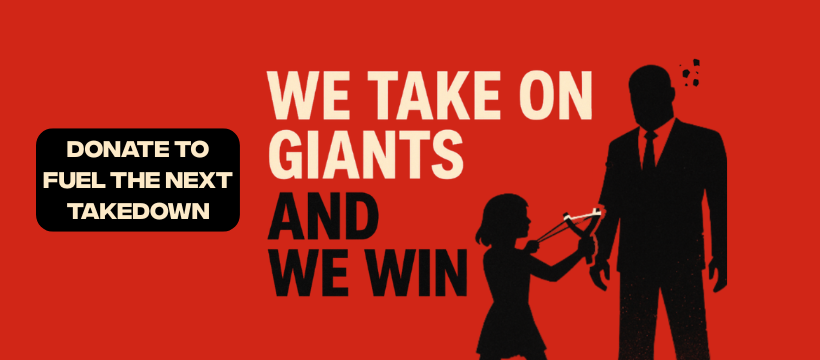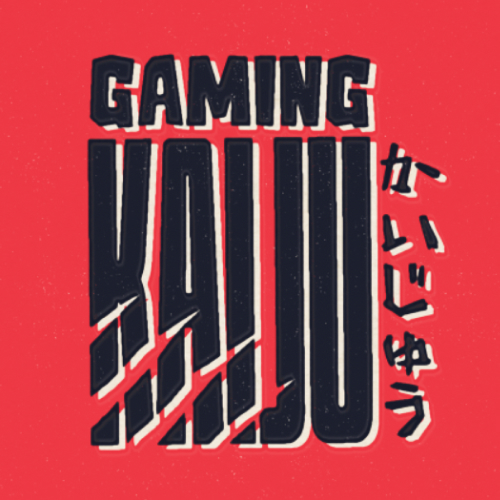
PayPal Steam Financial Censorship Problems: How Corporate Moral Police Destroyed Gaming’s Payment Freedom
PayPal Steam financial censorship problems:
How Corporate Moral Police Destroyed Gaming's Payment Freedom
Gaming Kaiju Industry Analysis - September 25, 2025
PayPal and Steam’s financial censorship issues have grown into systematic industry control, where payment processors influence content policies while withholding developers’ legally earned revenue. A UK programmer working on Steam adult games found themselves in financial limbo after PayPal froze their account with approximately £80,000, following a Steam payout. This case exemplifies broader corporate censorship efforts that turn private companies into moral arbiters of legal content.

The £80,000 Hostage Crisis: When PayPal Becomes Financial Police
The programmer had been using PayPal as their primary payment method after being dropped by multiple traditional and digital banks. This practice, known as “debanking,” left them with few options for receiving their Steam earnings.
When the substantial payout arrived, PayPal immediately limited the account and placed the entire amount on hold PayPal freezes £80,000 from UK adult game developer after Steam payout arrives. These PayPal Steam financial censorship problems demonstrate systematic targeting of legal content creators through financial infrastructure control.
They interviewed me and asked where it came from. I said it came from programming work I did for video games. They asked me where the games were sold, I said Steam. Then they asked me what specific game it was and demanded I link the store page. I linked the store page and when they realised it was an adult game they refused to release my money A UK Steam programmer claims PayPal froze payment over adult game involvement.
Here’s how the dispute unfolded at Gaming Amigos PayPal Reportedly Freezes Funds Linked to Steam Adult Game Developer – Gaming Amigos. The interrogation process reveals corporate investigation procedures that exceed law enforcement standards while targeting completely legal content.
This money was supposed to be used to pay a large corporation tax bill due in August Between the new restrictions brought about by the UK Online Safety Act and payment processors targeting digital storefronts, possibly even spearheaded by Project 2025, adult games are under more pressure than ever Developer Claims PayPal Is Refusing Them £80,000 Over Adult Steam Game. The timing creates artificial financial crisis where developers face tax obligations on earnings they cannot access due to corporate moral enforcement.
The PayPal Steam financial censorship problems compound when considering UK corporation tax obligations don’t pause for frozen funds. Under PayPal’s standard procedures, frozen funds can be held for up to 180 days—that’s six months of watching your own money sit untouchable behind digital glass Under PayPal’s standard procedures, frozen funds can be held for up to 180 days—that’s six months of watching your own money sit untouchable behind digital glass PayPal freezes £80,000 from UK adult game developer after Steam payout arrives.
Steam's Payment Ecosystem Collapse: The Domino Effect
In early July 2025, PayPal notified Valve that their acquiring bank for certain currencies was immediately terminating the processing of any transactions related to Steam. Valve confirmed that the removal of PayPal support for all but six currencies is “related” to pressure from banks and card companies to remove NSFW games, as the censorship controversy continues | GamesRadar+. This wholesale elimination of payment processing demonstrates how PayPal’s issues with Steam extend beyond individual developers to infrastructure-wide problems.
This impacts Steam purchases using PayPal in currencies other than EUR, CAD, GBP, JPY, AUD, and USD. Steam’s payment headaches grow as PayPal becomes unusable in much of the world; Valve hopes to restore it in the future, but the timeline remains uncertain | PC Gamer. The currency restrictions create global barriers, causing entire regions to lose payment options due to content policies targeting legal adult material.
Valve has confirmed that Steam’s sudden refusal to accept PayPal in many currencies is linked to the payment processor-led crackdown on NSFW games. The removal of PayPal support for all but six currencies is “regarding content on Steam, related to what we’ve previously commented on surrounding Mastercard.’ This corporate admission reveals coordinated financial pressure campaigns targeting digital content platforms.
The PayPal and Steam financial censorship issues cause a cycle of damage where content restrictions limit payment options, which further restricts platform accessibility for all users, regardless of content preferences. This systematic approach turns private payment preferences into public policy enforcement.

The Corporate Moral Police: PayPal's Selective Enforcement
You know what’s really ironic about this whole PayPal controversy? The company that processes payments for practically everything under the sun suddenly panics when it comes to adult content. We’re talking about the same platform that handles transactions for everything from questionable MLM schemes to overpriced fidget spinners, but it draws the line at adult games. The selective enforcement exposes corporate hypocrisy, where adult content faces stricter oversight than actual fraud schemes and predatory business models. PayPal’s censorship issues with Steam reveal arbitrary moral standards that protect corporate interests while harming legitimate content creators.
The PayPal terms of service prohibit payments for any products involving adult content. Even so, Fit-Commercial-5681 argues that the funds aren’t directly from sales of the Steam game. The indirect connection shows an expansive interpretation of the rules that criminalizes any association with legal adult content.
Since 2018, Steam has permitted properly labeled adult content, requiring developers to follow local laws and platform policies. The games must be clearly marked and behind age gates. Compliance with legal standards becomes irrelevant when payment processors impose their own moral standards.

Debanking Epidemic: The Financial Exile System
This isn’t the first time the programmer has encountered payment issues. They say major banks and digital banking apps like Wise and Revolut have closed their business accounts multiple times because of the type of content they produce. The developer initially chose PayPal to avoid getting “debanked” again. The systematic exclusion indicates a coordinated approach by the financial industry toward content creators.
The PayPal Steam financial censorship issues represent the final stage of financial exile, where alternative payment systems also reject legal content creators. When traditional banking, digital banking, and alternative payments all refuse service, debanking results in complete economic exclusion. This case highlights the ongoing struggles adult game developers face in securing reliable payment processing, even when their content is legal in their jurisdiction.
Legal compliance alone is no longer enough protection against corporate moral enforcement that operates outside legal boundaries. The pattern suggests a coordinated industry policy rather than independent corporate decisions. When multiple financial institutions simultaneously reject identical legal content, it points to organized censorship campaigns rather than isolated moral stances.

Valve's Capitulation: Platform Surrender to Payment Processors
We were recently informed that certain games on Steam may violate the rules and standards set by our payment processors and their associated card networks and banks. As a result, we are removing those games from the Steam Store because losing access to payment methods would prevent customers from purchasing other titles and game content on Steam.
Valve faces pressure from payment processors with new rules for game developers, leading to various adult games being removed | GamingOnLinux. Valve’s response shows complete platform capitulation, where content policies are dictated by payment processors rather than platform owners or users. Issues with PayPal and Steam’s financial censorship force Valve to prioritize their financial infrastructure over editorial independence and user choice.
Valve has added a new rule to the onboarding guide for game developers, stating that payment processors have a say in what remains on Steam. This policy change formalizes corporate censorship authority over platform content decisions. We are directly notifying developers of these games and offering app credits for those who wish to distribute other games on Steam in the future. This compensation system acknowledges wrongful removals while upholding censorship policies that led to the violations. The platform’s capitulation sets a precedent where payment processors exercise editorial control over digital content, transforming them into the ultimate arbiters of creative expression and consumer choice.

The Australian Crusade: Collective Shout's Global Impact
The campaign initiated by the Australian anti-porn group Collective Shout, which was in response to a small subset of games containing content related to sexual abuse and incest, has now led to some players in certain countries being unable to make purchases on Steam. The sex game censorship campaign is blamed for causing new PayPal issues with Steam. These financial censorship problems illustrate how targeted campaigns against illegal content can expand to affect all adult material.
The Australian anti-porn group claims responsibility for Steam’s new censorship rules, triumphing over what they call ‘porn sick brain rotted pedo gamer fetishists,’ and the situation only becomes more bizarre from there. The payment headaches grow as PayPal becomes unusable in much of the world: Valve hopes to restore service in the future, but the timeline remains uncertain, according to PC Gamer. The extremist rhetoric exposes ideological motives behind financial pressure campaigns that target lawful content.
The international impact shows how small activist groups can use corporate compliance systems to enforce global content restrictions. The PayPal-Steam financial censorship issues demonstrate how localized moral campaigns can evolve into worldwide policy enforcement through financial infrastructure pressure.
The success of Collective Shout’s campaign sets a template for future censorship efforts, where activist pressure on payment processors bypasses legal systems and democratic processes to impose content restrictions.

Developer Community Backlash: Industry Resistance Movement
Game developers association decries ‘financial censorship’ amid payment processor crackdown on NSFW games, calls for ‘greater transparency and fairness in how adult games are moderated.’ The association condemns the crackdown, emphasizing the need for clearer and fairer moderation of adult games. Steam payment issues continue as PayPal is no longer accessible for much of the world; Valve hopes to restore it in the future, but the timeline remains uncertain | PC Gamer. Industry recognition of financial censorship validates developer fears about payment processor overreach.
The PayPal and Steam financial censorship issues have united developers around concerns of financial freedom that go beyond content categories. When payment processing becomes a form of editorial control, the threats impact all creators, regardless of subject matter or target audience.
A brave developer vows to keep making games for freaks like me even as Steam decides to crack down on NSFW content: “I’ll just create the things I find interesting.” This developer remains committed despite Steam’s actions.
Steam removing PayPal support for all but six currencies is “related” to pressure from banks and card companies to eliminate NSFW games, Valve confirms as censorship controversy persists | GamesRadar+. Creative resistance movements are emerging as developers reject financial censorship while defending artistic freedom.
A horror developer states her FMV game has “no pornography whatsoever” but was still banned on Steam for NSFW content: “What this actually results in is taking power and storytelling away from women.” The expansion of scope affects non-adult content as well and demonstrates arbitrary enforcement that harms creative expression.
The response from the developer community shows a sophisticated understanding of how financial censorship threatens artistic freedom beyond adult content. Industry solidarity is growing around principles of financial independence and platform neutrality.

The Transparency Vacuum: Corporate Accountability Failure
The frustrating part isn’t just the money being held hostage – though let’s be honest, that’s pretty infuriating on its own. It’s the lack of transparency and communication that comes with these freezes. PayPal freezes 80K from an adult game developer in content crackdown | Yardbarker. PayPal’s issues with Steam’s financial censorship include systematic communication failures, where affected parties receive minimal explanation for account actions.
While no clear reasons were provided for the sudden suspension, users suspect PayPal’s actions are related to recent crackdowns on adult games across many digital platforms. A Steam adult game developer has their account frozen by PayPal, withholding £80,000 in earnings — AUTOMATON WEST. Corporate secrecy prevents accountability, forcing developers to speculate about enforcement standards.
According to Steam Support, PayPal told Valve that its banking partner would no longer process specific transactions, but no detailed explanation was given. The explanation chain breaks down at critical points where actual decision-makers remain anonymous and unaccountable. Developers wake up one morning to find their revenue stream cut off faster than a rage-quit in Getting Over It, with as little explanation as you’d get from a cryptic boss fight cutscene. This gaming analogy captures arbitrary enforcement that offers no meaningful recourse or explanation.

International Impact: Global Payment System Weaponization
I’ve been noticing this for quite a while. It started with PayPal showing ‘temporarily unavailable at this time’ here in the Philippines when I tried to buy games. The PayPal and Steam financial restrictions create international access barriers, where content policies in one region limit global gaming access. Currency restrictions hit developing countries harder, especially where alternative payment methods are limited or not available. These restrictions turn moral enforcement into economic discrimination, excluding entire populations from digital commerce. This mainly impacts Steam purchases using PayPal in currencies other than EUR, CAD, GBP, JPY, AUD, and USD. We hope to include PayPal for these currencies in the future, but the timeline is uncertain.
This indefinite delay damages infrastructure permanently, which may never be repaired. The overall impact shows how Western corporate moral standards are enforced worldwide through payment systems. Countries with different cultural standards face restrictions imposed by foreign corporate policies instead of local laws.

Gaming Kaiju's Verdict
PayPal and Steam’s financial censorship issues exemplify corporate authoritarianism disguised as terms of service enforcement, where private companies wield government-like censorship powers without legal authority or democratic oversight. The £80,000 developer case illustrates systematic financial persecution of legal content creators through the weaponization of payment infrastructure.
The debanking epidemic exposes a coordinated campaign by the financial industry to exclude adult content creators from economic participation despite compliance with laws and platform approvals. When traditional banking, digital banking, and alternative payment methods all reject similar legal content, this systematic exclusion amounts to economic warfare against creative expression.
Valve’s compliance with payment processor demands shows platform capitulation, where editorial independence becomes subordinate to financial control. Content policies dictated by payment companies rather than platform owners or users transform corporate compliance into a form of censorship over digital expression.
The Australian Collective Shout campaign’s global influence demonstrates how small activist groups can leverage corporate compliance systems to enforce worldwide content restrictions without legal authority. PayPal and Steam’s financial censorship issues reveal how extremist moral stances are exported through financial pressure rather than democratic processes.
The lack of transparency around enforcement decisions hampers accountability and forces developers to navigate arbitrary standards lacking clear guidance. Corporate secrecy shields decision-makers while exposing creators to financial penalties for unspecified violations of unstated policies.
International currency restrictions create global barriers, imposing Western corporate moral standards as policy on developing nations with different cultural frameworks. Weaponizing payment systems turns financial services into tools of cultural imperialism that restrict global digital commerce.
Backlash from developers shows industry acknowledgment that financial censorship threatens all forms of creative work, regardless of content. When payment processing becomes a form of editorial control, the threat extends beyond adult content, endangering artistic freedom across all media.
The expansion of scope to include non-adult content demonstrates arbitrary enforcement that criminalizes creative expression through guilt-by-association standards. Horror games and artistic works are treated the same as explicit adult material, revealing ideological targeting rather than content-specific issues.
Smart creators should see PayPal and Steam’s financial censorship issues as a systematic threat to creative independence, highlighting the need for alternative financial infrastructures. Monopoly over digital payments creates single points of failure, where corporate moral positioning can destroy entire creative ecosystems.
The gaming industry needs payment systems that prioritize legal compliance over moral enforcement. Financial services should facilitate commerce, not dictate editorial content through economic coercion that bypasses legal frameworks and democratic accountability.
PayPal and Steam’s financial censorship issues underline the urgent need for decentralized payment systems that prevent corporate censorship over legitimate creative expression.
The current financial infrastructure promotes ideological enforcement rather than economic facilitation, endangering creative freedom and consumer choice across digital entertainment.


